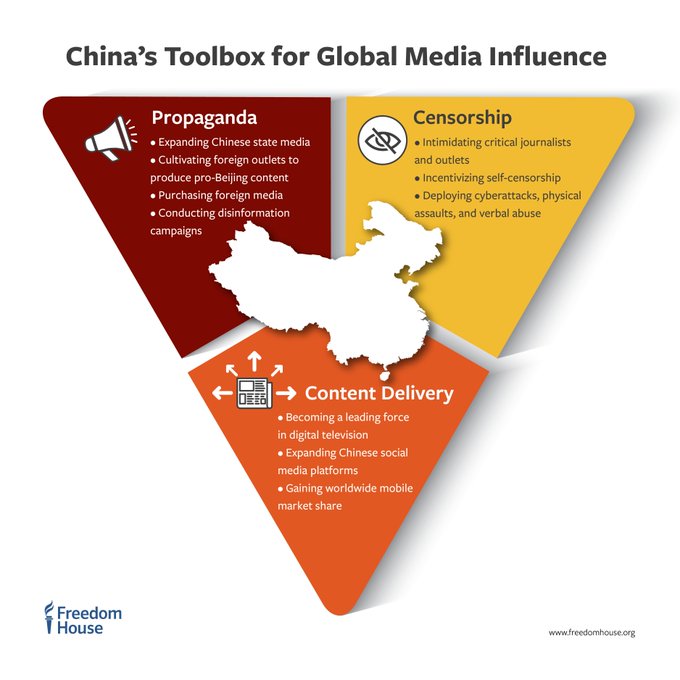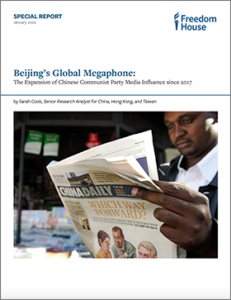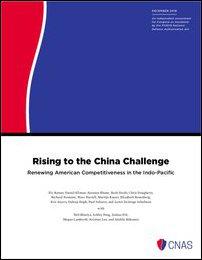
A leading German university has been plunged into scandal after it emerged that it had signed a contract binding it to abide by Chinese law while accepting hundreds of thousands of euros from China to set up a professorship to establish a Chinese teacher training programme, The Times HES reports:
German lawmakers have criticised the Free University of Berlin (FU) over the terms, which critics fear give the Chinese government leverage to prevent teaching about subjects such as the 1989 Tiananmen Square massacre and Tibet. The contract, obtained by the Berlin newspaper Tagesspiegel, allows the Chinese side to reduce or halt funding if any element of the programme contravenes Chinese law.
 The ruling Chinese Communist Party is moving to curb media organizations and social media users in their reporting of the Wuhan coronavirus epidemic, RFA has learned, as the number of confirmed cases rose to more than 17,000 with a total of 362 deaths reported on Monday.
The ruling Chinese Communist Party is moving to curb media organizations and social media users in their reporting of the Wuhan coronavirus epidemic, RFA has learned, as the number of confirmed cases rose to more than 17,000 with a total of 362 deaths reported on Monday.
The story of the rise and fall of two doctors underlines the tight control China’s leaders try to maintain over the official narrative, especially when confronting a potentially destabilising crisis such as an epidemic, The Financial Times reports.
“Under Xi, the tolerance for muckraking and whistleblowing has declined markedly,” said Peter Lorentzen, an associate professor at the University of San Francisco. He noted that social media, which did not exist during the Sars crisis, had become a perennial threat to party control. “As I see it, the party — not just Xi — has decided that the benefits of better information and improved governance from whistleblowing no longer outweigh the cost in terms of potential destabilisation or delegitimisation.”
 The CCP seeks to adopt the technology, social, and business layers of the current information economy to promote authoritarianism through commerce, argues Robert Spalding, a former director for strategic planning at the National Security Council and author of the recently published Stealth War: How China Took Over While America’s Elite Slept.
The CCP seeks to adopt the technology, social, and business layers of the current information economy to promote authoritarianism through commerce, argues Robert Spalding, a former director for strategic planning at the National Security Council and author of the recently published Stealth War: How China Took Over While America’s Elite Slept.
Using telecommunication networks, big data, artificial intelligence and machine learning, fintech, social media, and e-commerce it slowly builds in incentive systems that reinforce behavior which forwards CCP interests, he tells The Diplomat’s Mercy A. Kuo.
Countering the CCP’s narrative strategy, backed up by its real-world economic heft and increasing military capabilities, is an immense challenge, argues analyst Ian J. Lynch. But the good news is, as a new, congressionally mandated report from the Center for New American Security (CNAS), points out, that “Most elites and publics in the region still prefer American leadership, meaning that countries in the Indo-Pacific are primed to welcome a more coherent and positive American narrative.” Furthermore, there is even general discontent with China in authoritarian countries like those of Central Asia that are heavily dependent on China’s BRI, he writes for The Diplomat.
 But a misleading narrative has served to develop a crippling ignorance of the changing nature of information warfare, China’s weapon of choice, says analyst Caleb Slayton. The narrative has also masked the successful means by which Beijing has become a partner of almost every country in Africa and garnered their support at the international level.
But a misleading narrative has served to develop a crippling ignorance of the changing nature of information warfare, China’s weapon of choice, says analyst Caleb Slayton. The narrative has also masked the successful means by which Beijing has become a partner of almost every country in Africa and garnered their support at the international level.
African countries draw inspiration from China’s rise. Beijing’s success is more profound than any criticism the United States levels against China’s internal social, religious, and political oppression. Fareed Zakaria in Foreign Affairs recently warned against exaggerating the China threat. The United States is engaging less and less in a competition of action in Africa and more and more in a battle of words. If rhetoric is to be the prime U.S. weapon, the United States should at least do the following six things, he writes for War On The Rocks:
- develop a better narrative that thinks critically about China’s advantages outside of a wholly negative opinion.
- the United States needs to take advantage of the opportunity in Africa to pursue cooperation with China in order to create a pressure release valve against the growing mutual U.S.-China animosity in East Asia.
- the United States should engage in more introspection on its past and current failures in Africa engagement.
- the U.S. narrative must get more specific by country and ethnic group as opposed to misusing an overgeneralized perspective of “Africa” (something a short essay like this one fails to do).
- African media and institutions need to be encouraged to voice their perceptions more strongly without twisting their words to fit the great power competition narrative.
- the United States should continue to watch closely how China adapts to its security challenges, expands its military footprint (United Nations, private security, military basing), and adjusts to Africa’s economic and development environment.







